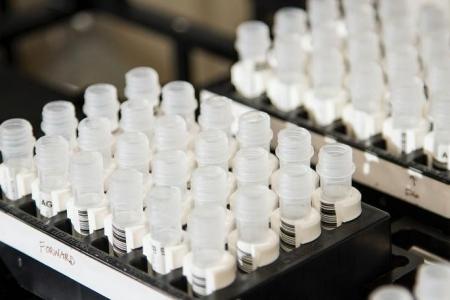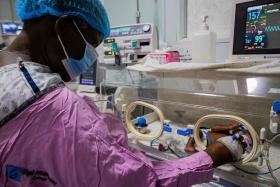Australian widow granted rights to harvest sperm from dead husband
In a landmark decision, an Australian widow has been granted legal permission to retrieve her late husband’s sperm.
The Supreme Court of Western Australia allowed the 62-year-old woman – whose identity remains confidential due to legal reasons – to remove the sperm from her husband who died on Dec 17, 2023, ABC News reported.
He was 61, and his sperm has been preserved in a morgue in Perth.
The widow’s desire to conceive a child via a surrogate faced a significant legal hurdle, as the posthumous use of reproductive tissue is prohibited in Western Australia.
She will now have to seek approval from the Reproductive Technology Council to use the sperm in a jurisdiction where the procedure is legal.
The couple had previously endured the death of their two children – a 29-year-old daughter who drowned during a fishing trip in 2013, and a 30-year-old son who died in a car accident in 2019. The documents revealed that they had discussed having another child to rebuild their family.
Despite her age being a barrier to natural conception, her late husband’s sperm had been tested and found suitable for in-vitro fertilization.
The court was informed that the couple’s cousin, a woman in her ‘20s living in the Philippines, had offered to serve as a surrogate.
Justice Fiona Seaward saw no indication that the husband would have opposed the posthumous retrieval of his sperm. But she questioned why the approval for the procedure had not been granted by a hospital delegate.
The widow had made an effort to arrange the sperm extraction immediately after her husband’s death but was compelled to seek an urgent court order when the hospital did not appoint a designated officer to manage her request.
In her judgment, Justice Seaward expressed disappointment over the necessity for court intervention under such distressing circumstances, suggesting that the process should be more streamlined.
The ethical aspects of posthumous fertilisation remain contentious among reproductive health experts.
Professor Roger Hart from the University of Western Australia told ABC that while the medical procedure is feasible, the moral implications should be considered carefully by counsellors and psychologists.
“The woman is going to have to use donor eggs, because she’s 62 and she’s also planning to use a surrogate... it’s posthumous use of the sperm, so the child will never know his/her dad,” Dr Hart said, outlining the complex process that lies ahead.
He also highlighted the risks associated with using sperm from an older man, noting an increased likelihood of chromosomal abnormalities that could affect the health of the child.
These risks, Dr Hart emphasised, would be part of the counselling provided to the widow.
Get The New Paper on your phone with the free TNP app. Download from the Apple App Store or Google Play Store now


